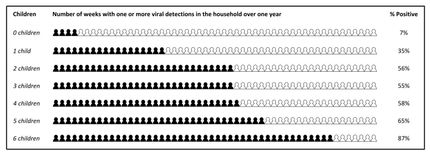Ebola virus disarmed by excising a single gene
The deadly Ebola virus, an emerging public health concern in Africa and a potential biological weapon, ranks among the most feared of exotic pathogens. Due to its virulent nature, and because no vaccines or treatments are available, scientists studying the agent have had to work under the most stringent biocontainment protocols, limiting research to a few highly specialized labs and hampering the ability of scientists to develop countermeasures.
Now, however, a team of researchers from the University of Wisconsin-Madison has figured out a way to genetically disarm the virus, effectively confining it to a set of specialized cells and making the agent safe to study under conditions far less stringent than those currently imposed.
"We wanted to make biologically contained Ebola virus," explains Yoshihiro Kawaoka, a professor of pathobiological sciences in the UW-Madison School of Veterinary Medicine and the senior author of a paper describing the system for containing the virus published in Proceedings of the National Academy of Sciences.
At present, research on live Ebola virus is confined to the very highest level of biosafety, known as Biosafety Level 4 (BSL 4). Because such laboratories are rare, small and very expensive, basic research that is the basis for any potential drugs or vaccines to thwart the virus has been limited to perhaps half a dozen labs worldwide. The system devised by Kawaoka and his colleagues could provide a way to greatly expand studies of the pathogen and speed the development of countermeasures.
Taming Ebola virus, according to the new study, depends on a single gene known as VP30. Like most viruses, Ebola is a genetic pauper. It has only eight genes and depends on host cells to provide much of the molecular machinery to make it a successful pathogen. The virus's VP30 gene makes a protein that enables it to replicate in host cells. Without the protein, the virus cannot grow.
"The altered virus does not grow in any normal cells," says Kawaoka. "We made cells that express the VP30 protein and the virus can grow in those cells because the missing protein is provided by the cell."
With the exception that it is unable to grow in anything but cells engineered to express the VP30 protein, the virus is identical to the pathogen found in the wild, making it ideal for studies of basic biology, vaccine development and screening for antiviral compounds. According to Kawaoka, making the agent available for study to a broader cross section of science is essential for thwarting the virus that kills a high percentage of its victims because there is now no defense against it. A new strain of Ebola, which so far has emerged only in remote areas of the world, was recently identified in Uganda and has killed at least 40 people.
"This is an emerging virus and it's highly lethal," Kawaoka says. "But because of the BSL 4 requirement, knowledge of this virus is limited."
Most read news
Topics
Organizations
Other news from the department science
These products might interest you

Systec H-Series by Systec
Safe, reproducible and validatable sterilization of liquids, solids and waste
Autoclaves with 65-1580 liters usable space, flexibly expandable for various applications

Whatman™ folded filter papers by Cytiva
Whatman folded filter papers
Convenient folded formats speed up your sample preparation

Get the life science industry in your inbox
By submitting this form you agree that LUMITOS AG will send you the newsletter(s) selected above by email. Your data will not be passed on to third parties. Your data will be stored and processed in accordance with our data protection regulations. LUMITOS may contact you by email for the purpose of advertising or market and opinion surveys. You can revoke your consent at any time without giving reasons to LUMITOS AG, Ernst-Augustin-Str. 2, 12489 Berlin, Germany or by e-mail at revoke@lumitos.com with effect for the future. In addition, each email contains a link to unsubscribe from the corresponding newsletter.
Most read news
More news from our other portals
Last viewed contents
A novel human stem cell-based model of ALS opens doors for rapid drug screening
Researchers identify phosphorylation process vital to cancer growth
Analytica 2014: New special exhibit for occupational health and safety
VIB-UGent scientist Jirí Friml receives Körber European Science Award 2010 for research on plant hormones and development























































